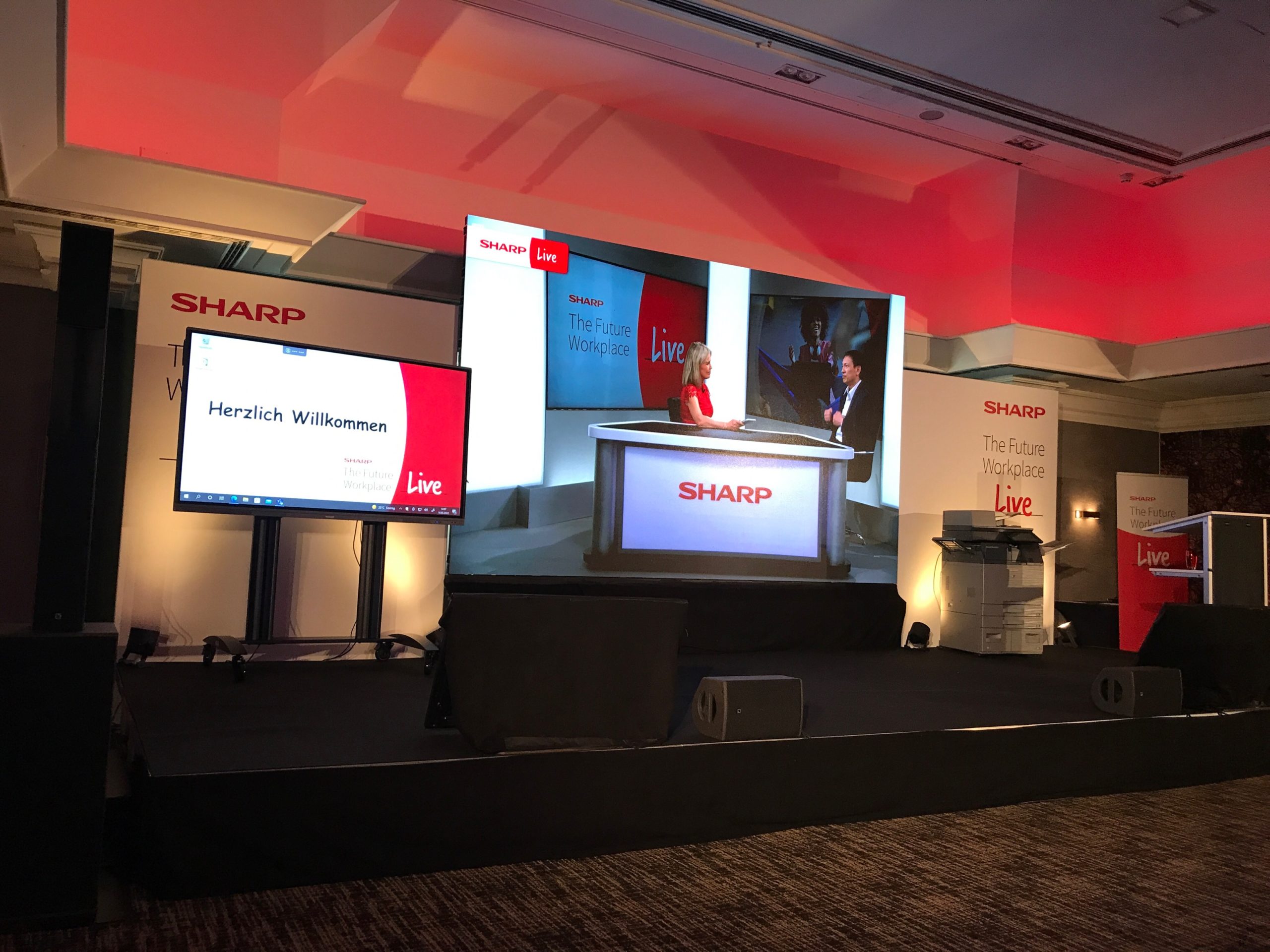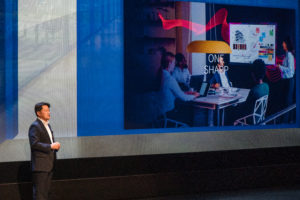Sharp is transforming its business to reposition itself as an IT services provider to support the future workplace. Through a mix of acquisitions and organic growth, Sharp now has a broad portfolio of products and solutions encompassing its new Future Workplace multi-function products (MFPs), displays, laptops and IT services. On 19th May, Sharp made a range of announcements that supported the broader collaboration requirements of the rapidly evolving hybrid workplace. Across what is now a broad portfolio with multiple brands, can Sharp effectively drive synergies across these diverse areas, build credibility as an IT services provider and, most importantly, transition its channel?
An industry in flux
The print industry is at an inflection point where industry players must transform to remain relevant in the rapidly evolving connected, hybrid workplace. Amidst declining print volumes, supply chain constraints, and renewed impetus around sustainability, technology suppliers must adapt and reposition their product and service portfolio to deliver the business outcomes that customers are prioritising around secure and seamless collaboration that drives workplace efficiency. In the print industry, this demands that traditional manufacturers accelerate the shift from a product-centric to a services-centric model. Whilst managed print services (MPS) has been an effective model, it must now become the foundation of broader digital transformation to support the needs of the future workplace.
Delivering an integrated IT portfolio
Sharp has already made strong inroads in transforming its portfolio beyond its traditional MFP business. It continues to build out its IT services credibility through its acquisition of Complete IT in the UK and IT Point in Switzerland. This is complemented by its growing presence in the laptop and display market. Dynabook, built on 35 years of Toshiba laptop heritage, is now a wholly owned subsidiary of Sharp Corporation, and its joint venture with NEC Display Solutions offers one of the broadest visual solutions portfolios in the industry. With a broad portfolio across these key areas, Sharp is well positioned to deliver hybrid workplace solutions and build its credibility as a broader technology provider. At its recent press event, it highlighted one of its customers in France. Bernier, a car dealership, has implemented Sharp MFPs, displays, laptops and IT solutions across its 38 sales offices.
Building next-generation document systems for future workplaces
This year marks Sharp’s 50th anniversary since it launched its first copier. It continues to drive innovation across its MFP portfolio, with the launch of its Future Workplace A3 MFP Series, a range of fifteen new colour MFPs with speeds of 26ppm to 65ppm. Notable features include a native Microsoft Teams connector, which enables employees to print from and scan documents to their Teams channels and folders. In addition, the Synappx Go mobile app enables contactless and remote printing from smartphones and mobile devices.
The new models feature user-friendly, state-of-the-art security. This includes BIOS-based security, which instantly prevents the device from starting if errors are found, and pre-installed root certificates prevent any unauthorised use of devices. The new MFPs include Bitdefender anti-malware support – making it much easier for IT teams to keep data secure. Sharp claims that the new MFPs deliver up to 27% more energy saving compared with previous generations. In addition, smart diagnostics and minimised waste features help to lower environmental impact.
In addition, Sharp recently announced Synappx Collaboration Hub, a smart subscription service that aims to simplify the meeting experience, addressing the changing needs and challenges of hybrid meetings.
The channel opportunity
As a channel-led company, Sharp’s success also relies on strong channel execution. The company is already clearly focused on the channel partners that want to join it on this journey to IT services success. However, IT services is a big leap from traditional MPS and relies on strong expertise across a range of areas. Sharp’s packaged IT services should offer channel partners the flexibility to scale their IT services as required, and potentially gain access to broader IT-led engagements beyond traditional MPS. The channel will need help: Sharp must step up to ensure that those willing to be part of this new era for Sharp are fully supported. Sharp may also need to find new channel partners with already-proven strengths in the IT services market.
Conclusion
Sharp is undoubtedly on the right track to reinvent itself as a credible technology provider. It has developed a strong portfolio across document solutions, visual solutions and IT services. This, along with industry-leading partnerships, also enables Sharp to deliver best-of-breed solutions that are key to any digital transformation initiative. What remains to be seen is how well Sharp drives synergies across its business groups that have grown through acquisition.
Hear more about Sharp’s strategy in Quocirca’s Podcast with Jason Cort of Sharp Europe





